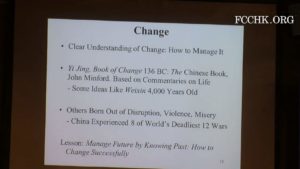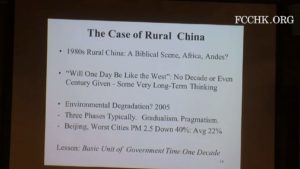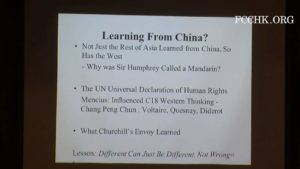
A new book for my top 10 list this year, recommended by our own China expert Richard Brown. This is not just a book about China, but about learning things from an entity with the richest data points (history and scale). Ideologies aside, any data scientist would love to mine such a rich database, so why not apply this thinking to policy, development, and managing change?
“Understanding China can be perplexing but also exhilarating. Paradoxes abound. Simultaneously, China can appear to be communist and capitalist, rich and poor, rigidly bureaucratic and manically free-wheeling, traditional and modern, inward-looking and outward-going.”
“This is not Chinese exceptionalism. The difference in China is that people are highly conscious of what needs to be done to overcome all the mounting challenges and problems since the 19th century. Almost everything has to change or the economy would collapse. Consider the list: feed adequately the entire population, wipe out illiteracy, ensure everyone has a job, end acute overcrowding, provide better education and health care, and do it in a country of 1.4 billion people. Addressing these problems creates new ones: pollution, congestion and industrial accidents, among them.”
又是一本入圍吳女士年度前十的重磅好書
記得幾年前在一場會議中,一位大陸官員 (40多歲的女性)很認真的問我 “為什麼台灣朋友們這麼不理解我們?” 我當場答不出來。近幾年頻繁接觸,深深意識到雖然我們從小學中國歷史和哲學,但還是深受美式思維影響,帶著一些預設立場看事情 (他們對於“民主”、“統戰”、“和諧”等字眼跟我們定義其實不盡相同,雖然我們語言算是一樣的)。撇開政治與意識形態,這本書並非在歌頌中國發展,而是在探討中國作為世界上唯一沉淪後能再生的古文明,如何從這個巨量資料(歷史長度與人數)來尋得一些有用的方法面對越變越急遽的世界?
This video sums up the book quite well
“Why Has China’s Economy not Collapsed : China’s X Factor”
– Manage future by knowing past, how to change successfully (鑑往知來)
– basic government unit of time is one decade (欲速則不達)- Different can just be different, not wrong (接納異己是獲得新觀點的開始)



